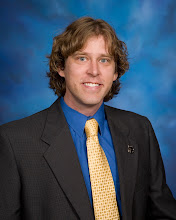 In “The Scientific Letters and Papers of James Clerk Maxwell, Vol I (1846-62), Vol II (1862-1873), and Vol III (1874-1879)” published by Cambridge University Press, in December 1873 (150 years ago), Maxwell wrote: “A mathematician is one who endeavors to secure the greatest possible consistency in his thoughts and statements, by guiding the process of his reasoning into those well-worn tracks by which we pass from one relation among quantities to an equivalent relation. He who has kept his mind always in those paths which have never led him or anyone else to an inconsistent results, and has traversed them so often that the act of passage has become rather automatic than voluntary, is, and knows himself to be, an accomplished mathematician. The very important part played by calculation in modern mathematics and physics has led to the development of the popular idea a mathematician as a calculator, far more expert, indeed, than any bankers’ clerk, but of course immeasurably inferior, both in resources and in accuracy, to what the ‘analytical engine’ will be, if the late Mr. Babbage’s design should ever be carried into execution.”
In “The Scientific Letters and Papers of James Clerk Maxwell, Vol I (1846-62), Vol II (1862-1873), and Vol III (1874-1879)” published by Cambridge University Press, in December 1873 (150 years ago), Maxwell wrote: “A mathematician is one who endeavors to secure the greatest possible consistency in his thoughts and statements, by guiding the process of his reasoning into those well-worn tracks by which we pass from one relation among quantities to an equivalent relation. He who has kept his mind always in those paths which have never led him or anyone else to an inconsistent results, and has traversed them so often that the act of passage has become rather automatic than voluntary, is, and knows himself to be, an accomplished mathematician. The very important part played by calculation in modern mathematics and physics has led to the development of the popular idea a mathematician as a calculator, far more expert, indeed, than any bankers’ clerk, but of course immeasurably inferior, both in resources and in accuracy, to what the ‘analytical engine’ will be, if the late Mr. Babbage’s design should ever be carried into execution.”
Interestingly, this was written by one of the greatest mathematical physicists of all time. Charles Babbage (1791- 1871) originated the concept of a digital programmable computer had died just over two years before Maxwell wrote the above.
 We can see Maxwell pass from one relation to an equivalent relation in a picture I took from in a museum where he was born.
We can see Maxwell pass from one relation to an equivalent relation in a picture I took from in a museum where he was born.
 The next paragraph goes on, “But although much of the routine work of a mathematician is calculation, his proper work - that which constitutes him a mathematician - is the invention of methods. He is always inventing methods, some of them of no great value except for some purpose of his own; others, which shorten the labour of calculation, are eagerly adopted by all calculators. But the methods of which the mathematical is content to hang his reputation are generally those which he fancies will save him and all who come after him the labour of thinking about what has cost himself so much thought.”
The next paragraph goes on, “But although much of the routine work of a mathematician is calculation, his proper work - that which constitutes him a mathematician - is the invention of methods. He is always inventing methods, some of them of no great value except for some purpose of his own; others, which shorten the labour of calculation, are eagerly adopted by all calculators. But the methods of which the mathematical is content to hang his reputation are generally those which he fancies will save him and all who come after him the labour of thinking about what has cost himself so much thought.”
That is a good description of many of the files I’ve put together on my TI-Nspire to teach AP Calculus. Some files, like Volume by Cross Section, were challenging to figure out, but they have been of help for my students and other teachers to help student visualize the mathematics. (For example, see https://sites.google.com/site/tinspiregroup/classroom-news/3dparametric )
Interestingly, I read in Maxwell’s biography (pg. 71) from a letter he wrote his father that 178 years before I was there, that he and a friend visited the beach at Portobello. My friends with Texas Instruments shared about how some of their mathematicians or software engineers have been active inventing methods to make 3D graphing work and many other functionality, including the programming language Python work on the TI-Nspire handheld. A student gave me a Python option to have the flag of Scotland, the oldest flag in the world, on my TI-Nspire as it posed on the beach.




